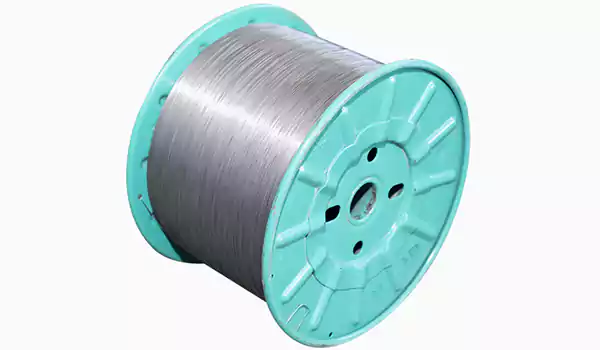
Deciding on the appropriate tubular component for an assignment relies on understanding its specifications and likely applications. Regular specs cover substrate, thickness rating, length value, and permissible tolerances. Aspects such as rated pressure, thermal tolerance, and corrosion defence are key when choosing pipes for industry, commerce, or residences. Metal pipes are deployed across building, manufacturing, civic infrastructure, supply networks, gas systems, drainage installations, structural reinforcement and particular usages
- Recognizing the unique requirements of the work helps identify the best pipe
- Check regulatory standards and technical codes for comprehensive metal pipe specs
- Choose materials based on pressure demands, temperature exposure and corrosive environments
Tubular Steel: Strengthiness, Endurance, and Multipurpose Use
Tube steel is renowned for exceptional strength and is a top choice for many industrial, structural and commercial uses. Their remarkable lifespan comes from specific construction and forming techniques. Constructed by processing steel feedstock into tubes via drawing or welding, they give robust corrosion and wear protection and lasting service in difficult environments. Tube steel's adaptability permits forming into simple round profiles or intricate shapes for customized solutions. Whether used in major structural frameworks, complex equipment or precision machinery, tube steel's strength, long service life and versatility render it a critical material in modern fabrication and constructionPerforated Metal Mesh for Elevated Security and Safety
Expanded metal mesh is frequently used where physical security and heightened safety are both necessary. Because of its open weave it provides clear sight while serving as a physical deterrent to trespass and hazards. Customization options cover different opening sizes and material thicknesses for target performance
- Sturdy expanded metal endures impacts, vandalism and challenging weather conditions
- Besides, simple mounting and limited maintenance requirements drive its adoption across industries
- For shielding essential facilities and personnel safety in manufacturing sites, expanded metal provides a complete protective approach
Commercial and Industrial Uses for Metal Mesh
Metal steel mesh is heavily employed in industrial settings for its output strength, resilience and functional versatility. It contributes a durable scaffold for filtering, screening, strengthening and guarding applications. Concrete structures often employ steel mesh reinforcement to bolster tensile strength and lessen cracking tendencies. Likewise, steel mesh is utilized in bridged sections, tunnel linings and civil works for added support and load-carrying ability. Manufacturing relies on steel mesh screens and filters with dense or fine structures to segregate materials by size for sieving, sorting and purification. Additionally, steel mesh is used in safety and security contexts including barriers, fencing and enclosures to restrict access and protect staff. Steel mesh's tensile robustness equips it to resist impact and stress, providing trustworthy protection in strenuous scenarios
Structural Deployments for Metal Tubes
Inherent robustness makes metal pipes indispensable for diverse structural applications. Their malleability permits the formation of strong frameworks for diverse load-bearing structures across industries. Across tall buildings, bridges and subterranean pipelines, metal pipes deliver foundational support while enduring harsh environmental stresses. Corrosion resistance combined with straightforward fabrication boosts their relevance in current building methods
Picking the Right Tube Steel for an Application
When engaged in construction or fabrication, deciding on the right tube steel is pivotal. With its strong, durable and lightweight characteristics, tube steel fits numerous use cases. Yet the plethora of grades and specs available makes selecting tube steel a sometimes complex task
- To achieve project goals, review intended use, load criteria and ambient conditions
- Key factors including wall thickness, diameter and grade directly shape tube steel performance
When load demands are high, choose heavy-gauge, high-yield tube steel with thicker walls; for lightweight assemblies, select thinner-walled, low-mass steel
Consult structural engineers or trusted metal vendors to ascertain the proper tube steel for your project
Benefits and Advantages of Expanded Metal in Construction
Expanded metal presents diverse practical advantages and efficiency gains for construction tasks. Its lower weight facilitates placement and installation and helps decrease labor-related costs. Besides, the open design allows superior metal material near me ventilation and drainage to mitigate dampness concerns. Durable construction renders it ideal for situations demanding high resistanceUnderstanding Metal Pipe Connections
Metal pipe connections are basic components in plumbing and piping systems that join pipes to permit fluid or gas flow. Choosing the right connection depends on pipe diameter, material, pressure rating and application. Standard metal pipe connections include threaded, flanged and welded options that vary in strength and sealing performance. Threaded joints screw male to female threads, flanged joints clamp with bolts on flat surfaces, while welded joints permanently fuse sections by heat and pressure. Comprehension of connection characteristics supports reliable, leak-proof piping performanceSteel Mesh as a Multipurpose DIY Material
Metal steel mesh is a strong, durable and adaptable material suitable for a wide range of DIY projects. The perforated, linked structure makes it appropriate for fences, screens and visual fixtures. Moreover, being light and simple to work with, it appeals to novice and proficient handypersons
- Explore the use of metal mesh in your forthcoming DIY project
Metallic Pipes: Plumbing and Construction Support
Steel pipes play a central role in contemporary infrastructure and building works thanks to their robustness, endurance and versatility. Originally used mainly for plumbing and sanitary systems, metal pipes have evolved to play major roles in structural reinforcement and support. From skyscraper supports to the veins of water and gas networks, metal pipes underpin many everyday and infrastructural functions. Toughness enables them to withstand heavy pressures and loads while corrosion resistance secures long-term function. Besides, pipes’ adaptability makes them easy to form into various setups to satisfy different application requirements
Design Flexibility and Functionality of Expanded Metal
Expanded metal offers special design opportunities paired with effective functionality. Open formation makes it useful for architectural accents as well as industrial safety and security systems. Strength combined with aesthetic potential means expanded metal can support loads and still look appealing
- Plus, the open structure enhances airflow and is well-suited to areas needing thermal regulation or cooling
- Applications of expanded metal are wide-ranging across construction, manufacturing, transportation and creative design fields